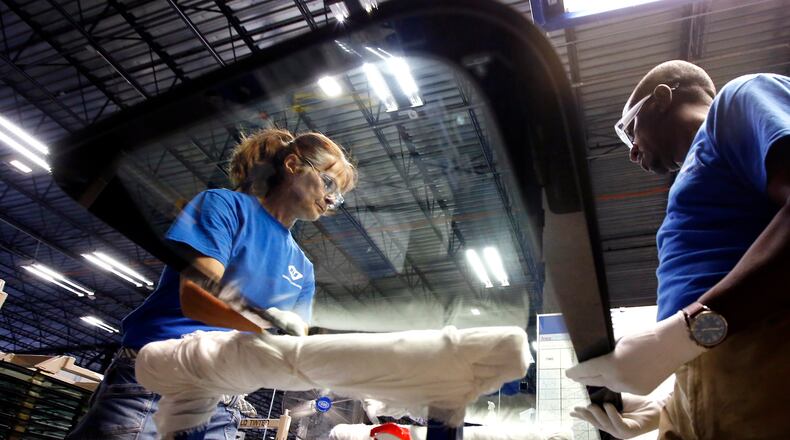Fuyao, one of the Dayton area’s fastest growing manufacturers, is being sued by 636 current and former workers in a legal bid to change the way the company schedules and pays employees.
RELATED: Fuyao now being sued by 636 people over pay
For the “opt-in” class, Fuyao gets to choose 80 plaintiffs, the plaintiffs themselves get to choose 20 opt-in plaintiffs and another 20 will be randomly selected, the court said in the new report.
In a lawsuit’s discovery phase, before the trial happens, lawyers for each side depose or interview participants in the case, request documents and gather information to build their respective cases.
“It’s customary to do what we call a discovery sample class,” said Bob DeRose, the Columbus attorney representing plaintiffs in the case. The idea is to save time by selecting a set of “representative” plaintiffs, avoiding the need to depose all of the more than 600 plaintiffs in the case.
RELATED: Manufacturing growth: Fuyao needs 400 more workers by year's end
Tied to the case also are 4,000 plaintiffs in a possible “putative Ohio class,” a number that includes both current and former Fuyao employees.
“They do (have 4,000 putative class members), because I can go back three years,” DeRose said. “Fuyao is a huge case.”
According to the report, Fuyao can take up to 30 depositions of the opt-in plaintiffs in the discovery class, as well as depose three additional plaintiffs.
Depositions will not take more than four hours, the report also says.
No trial has been scheduled yet.
Fuyao has about 2,300 workers today making automobile safety glass at a plant in Moraine. The case goes back to the original plaintiff, Julia Staggs, who filed her suit in June 2017 in Dayton’s federal court. Staggs worked at Fuyao from September to December 2016, according to her suit.
Staggs has alleged that she worked overtime at Fuyao without being paid a time-and-a-half wages for that overtime work. She also claimed that she and others were not completely relieved of duties during what were supposed to be breaks from work.
DeRose and the plaintiffs have said that Fuyao automatically deducts from payroll for lunch breaks — whether or not employees actually take the breaks. Some employees work through lunch or they don’t take the entire 30 minutes as an uninterrupted break from work, they claim.
“They’re not paying for all the hours worked,” DeRose has told the Dayton Daily News. “We are maintaining this is a company-wide policy.”
Attorneys for Fuyao have denied the allegations. A message seeking comment for this story was sent to them Tuesday morning.
In February 2018, a federal judge granted class-action status to plaintiffs in the case.
About the Author

